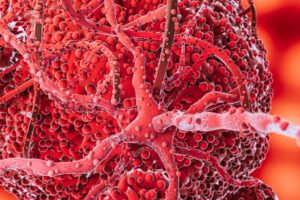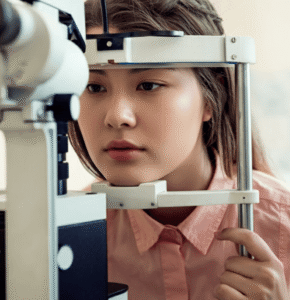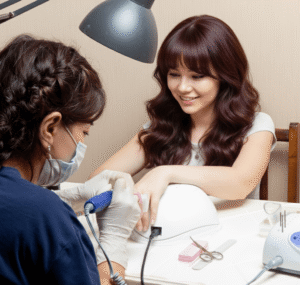South Korea is entering a critical phase in its demographic transition — a rapidly aging society where neurodegenerative diseases like Alzheimer’s and dementia are becoming major public health priorities. With one of the world’s fastest-growing elderly populations, the country faces increasing challenges in diagnosis, treatment, and caregiving for seniors affected by cognitive decline. In response, Korea is building a robust network of national dementia centers, research programs, community services, and caregiver support systems to manage these conditions effectively and compassionately.
The Growing Challenge of Dementia in Korea
As life expectancy rises, so does the prevalence of dementia.
● Statistics: According to recent national data, more than 1 million Koreans over 65 live with dementia — a number projected to double by 2050.
● Aging Society: By 2026, Korea is expected to become a “super-aged” society, where more than 20% of citizens are 65 or older.
● Common Types: The majority of cases are Alzheimer’s disease, followed by vascular dementia related to stroke and circulation problems.
● Economic and Social Impact: Dementia not only burdens families emotionally but also places pressure on healthcare systems and long-term care services.
This growing concern has prompted the government and medical community to expand nationwide dementia management strategies that focus on prevention, early detection, and integrated care.
National Dementia Policy and Infrastructure
To address this urgent need, Korea established a National Dementia Management Policy (NDMP) in 2008, later expanded under the Comprehensive National Dementia Plan.
● National Dementia Centers (NDCs): The country operates a central dementia center under the Ministry of Health and Welfare, coordinating research, policy, and resource distribution across all regions.
● Regional Dementia Centers: Over 250 local dementia centers provide screening, counseling, and education to patients and caregivers.
● Free Cognitive Testing: Seniors can access free or low-cost Mini-Mental State Examination (MMSE) screenings at community health centers to detect early signs of cognitive impairment.
● Data and Research Networks: National databases collect information on dementia prevalence, treatment outcomes, and risk factors to guide public policy and medical research.
● Public Awareness Campaigns: Nationwide media efforts promote understanding of dementia, emphasizing that early diagnosis leads to better outcomes.
This infrastructure ensures that dementia care is not isolated to hospitals but extends into local communities where it is most needed.
Medical Management and Research Advances
Korea’s healthcare system is integrating clinical innovation and advanced technology into dementia care.
● Early Diagnosis Programs: Hospitals now use neuroimaging, genetic testing, and biomarker analysis to detect Alzheimer’s before symptoms fully appear.
● Medication and Therapy: Standard treatments include cholinesterase inhibitors and NMDA receptor blockers to slow cognitive decline. Many hospitals also offer non-drug therapies, such as cognitive rehabilitation, music therapy, and light exercise.
● AI and Digital Monitoring: Artificial intelligence tools analyze patient data to predict dementia progression. Smart devices monitor daily activity, helping caregivers track changes in memory and behavior.
● Genetic and Pharmaceutical Research: Korean biotech firms and universities are collaborating on gene-based treatments, anti-amyloid drugs, and neuroprotective compounds. Research centers like the Korea Brain Research Institute lead studies on how lifestyle, diet, and genetics affect brain aging.
These medical advancements bring hope for earlier interventions and improved quality of life for patients.
Community-Based Care and Support
Effective dementia management extends beyond hospitals into local communities. Korea’s community-centered care model provides ongoing support to seniors and their families.
● Dementia Relief Centers (치매안심센터): Located in most cities and counties, these centers provide screening, counseling, day-care services, and cognitive stimulation programs for patients.
● Home Visiting Programs: Trained nurses and social workers visit patients at home to assist with medication, hygiene, and mental engagement activities.
● Memory Classes: Local welfare centers run group sessions that include brain training exercises, music, and art therapy to keep patients mentally active.
● Senior Care Networks: Collaboration between public health centers, hospitals, and nursing homes ensures continuity of care.
● Volunteer Support: Community volunteers receive special training to help dementia patients with daily tasks and provide companionship.
These programs not only support patients but also reduce caregiver stress by offering practical assistance and respite options.
The Role of Caregivers and Families
Family members are often the primary caregivers for dementia patients in Korea, which can be physically and emotionally demanding. Recognizing this, the government and NGOs have developed programs to support caregivers directly.
● Caregiver Education Programs: Offered through dementia centers and hospitals, these classes teach families about behavior management, communication, and coping strategies.
● Respite Services: Temporary care services allow families to rest while professionals care for patients at home or in day-care facilities.
● Counseling and Support Hotlines: Emotional support and guidance are available via 24-hour dementia counseling centers nationwide.
● Financial Assistance: The National Health Insurance Service (NHIS) covers parts of the cost for home-care visits, medications, and cognitive therapy sessions.
This holistic approach acknowledges that supporting caregivers is as important as treating the patient.
Technology and Smart Care Solutions
South Korea’s strength in digital technology is revolutionizing dementia management.
● Smart Home Systems: Sensors and wearable devices alert caregivers to unusual behavior patterns, such as wandering or sleep disturbances.
● Mobile Apps: Families can track medication schedules, receive care tips, and access emergency contact networks through apps developed by health agencies.
● AI-Based Cognitive Games: Digital platforms designed by Korean researchers use memory exercises and puzzles to help slow cognitive decline.
● Telemedicine: Remote consultation allows doctors to monitor patients in rural areas without frequent hospital visits.
By integrating technology into healthcare, Korea is improving accessibility and safety for aging citizens living with dementia.
Challenges and Future Needs
While Korea’s dementia programs are impressive in scope, several challenges remain:
● Rural Accessibility: Smaller towns may lack specialized dementia centers or trained professionals.
● Caregiver Burden: Many families still struggle to balance work and long-term caregiving responsibilities.
● Workforce Shortage: Demand for dementia specialists, geriatric nurses, and therapists continues to grow.
● Social Stigma: Although awareness is improving, some families still hesitate to discuss dementia openly.
● Long-Term Care Funding: As patient numbers rise, sustainable financing for care programs is a growing concern.
Addressing these issues requires policy innovation, workforce development, and continuous research investment.
Future Outlook and Policy Goals
Korea’s dementia management strategy is evolving toward integrated, patient-centered care. Future goals include:
● Expanding Screening Coverage: Regular cognitive tests for all citizens aged 60 and above.
● AI and Genomic Integration: Personalized prevention programs based on genetic risk and lifestyle patterns.
● National Dementia Insurance: A specialized system under NHIS to reduce out-of-pocket expenses for long-term care.
● More Dementia-Friendly Communities: Designing public spaces, signage, and transport systems to accommodate patients safely.
● Public Education Campaigns: Promoting dementia awareness among youth and reducing stigma across generations.
These plans will help Korea create a compassionate, technologically advanced system that ensures dignified aging for all citizens.
Final Thoughts
Korea’s comprehensive approach to managing Alzheimer’s and dementia reflects its dedication to public health, innovation, and family-centered care. Through national policy, advanced medical research, and community-based support, the country is turning one of its biggest demographic challenges into an opportunity for compassionate healthcare reform.
● Early detection protects memories and independence.
● Caring for the elderly strengthens families and communities.
● Korea’s leadership in dementia care sets a model for aging societies worldwide.
By uniting medical science, social support, and human empathy, Korea is ensuring that aging with dignity remains a shared national promise — one that values memory, family, and the humanity of every generation.













